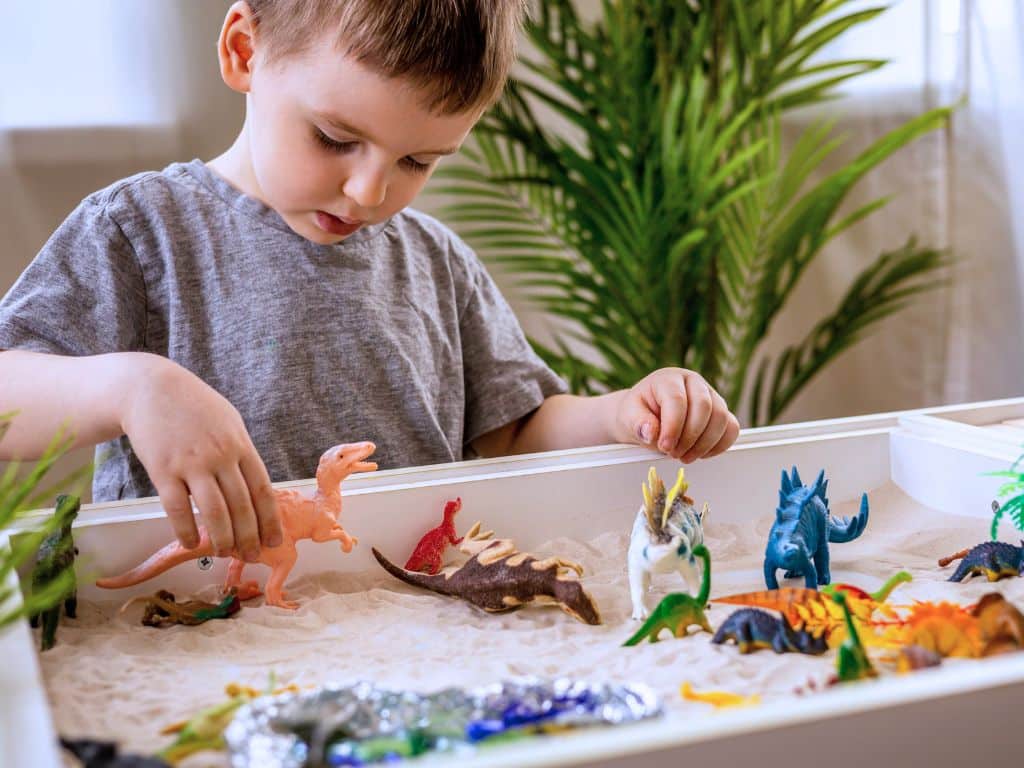
At birth, most infants have all their senses. Although infants haven’t fully developed them yet, they use their senses to navigate the world, and developing these senses is a critical part of growing. Sensory play involves giving them activities that engage and stimulate these senses to help children “make sense” of the world around them. This relatively new parenting tool may seem like a newfangled phase that will fizzle out over time, but it shouldn’t be! Sensory play is incredibly important for children’s development and can benefit their emotional and mental well-being!
Assists in Developing Fine and Gross Motor Skills
Using the small muscles in our hands and wrists exhibits manual dexterity, known as fine motor skills. Gross motor skills are much larger, full-body movements, such as crawling, walking, and jumping, and often come before a child fully develops their fine motor skills. For example, a child will learn how to roll over long before they learn how to hold a cup or pencil. Give your child a color card, then have them walk around the house and match it to an object to help them build their gross motor skills. This way, they get to move and navigate the world while learning how to match colors.
For fine motor skills, having to pour, cut, or stack objects helps your child coordinate hand movements. Take yellow, blue, and red food dye and make three red cups of water, three yellow cups, and three blue cups. Once you’ve made the colored water, have them pour different color combinations. With this activity, they can learn about how colors work and build their fine motor skills.
Builds Language Skills and Emotional Development
When your child engages in any sort of play, especially sensory play, they’re learning about how to explain their wants and needs. However, before a child learns to speak, they have to learn to communicate in other ways, and this causes them to look inward. This observation of the self makes it easier for them to interpret their feelings in the future.
Naturally, when you throw other children in the mix, like siblings or classmates, they’ll have to learn how to work together. This furthers their language skills, emotional development, and problem-solving skills—this is also a great way to foster social interaction for shy children.
Supports Emotional Regulation
As parents, we want to teach our children how to self-soothe and emotionally regulate themselves. While this takes a lot of parental participation, children can also learn to develop these skills, in part, on their own through sensory play. When children engage in play that allows them to use their senses, it helps them feel in control. Emotions are also very physical experiences, so allowing them to experience the world through sensation gives them pause, allowing them to settle with their feelings and observe.
Overall, the importance of sensory play for children goes well beyond physical development, as it gives children the tools to observe, contemplate, choose, and react.
